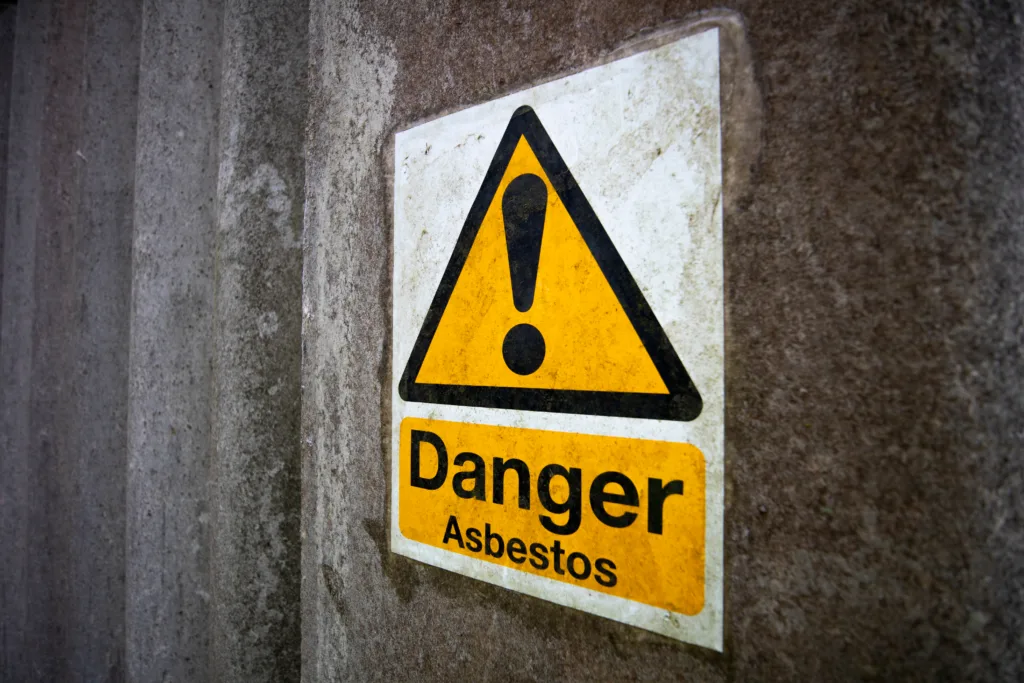If you suffer asbestos exposure, always recognize the potential health risks associated with this harmful substance. One of the most serious conditions that can develop from asbestos exposure is asbestosis. This progressive lung disease can have serious consequences for your health, so you should know the warning signs and seek medical attention if you suspect you may have developed asbestosis.
If you receive a diagnosis, you likely have important legal rights to compensation for your losses. Discuss a possible legal claim with a Chicago asbestos injury lawyer today.
How Do You Know If You Have Symptoms of Asbestosis?
Asbestosis is a condition that develops as a result of long-term exposure to asbestos fibers. These microscopic fibers can become trapped in the lungs when inhaled and gradually lead to the scarring of lung tissue. Over time, this scarring can cause various symptoms that can impact your respiratory function and overall quality of life.
The first signs of asbestosis can often be quite subtle and may be mistaken for common respiratory ailments. However, paying attention to any changes in your respiratory health is important, especially if you have a history of asbestos exposure.
Some of the early symptoms of asbestosis include:
- Fatigue: Asbestosis can cause fatigue and a general feeling of tiredness. Even simple activities that once seemed easy may leave you feeling exhausted.
- Shortness of breath: You may notice that you become more easily winded during physical activity or even at rest. This persistent shortness of breath can worsen over time and eventually impact your ability to perform everyday tasks.
- Persistent cough: If you have a chronic cough that lasts for several weeks and doesn’t seem to improve, it can be a sign of asbestosis. This cough may come with phlegm or blood and may worsen as the disease progresses.
- Finger clubbing: In advanced stages of asbestosis, your fingertips may start to appear rounder and wider than usual. This condition, known as finger clubbing, results from the lack of oxygen in your bloodstream caused by impaired lung function.
- Chest tightness or discomfort: As the scarring in your lungs increases, you may experience a sensation of tightness or discomfort in your chest. This can feel like pressure or a squeezing sensation and may worsen with physical exertion.
What are Common Signs You Have This Condition?
As asbestosis progresses, the symptoms can become more pronounced and have a significant impact on your daily life. Be aware of these signs and seek medical attention if you experience any of them. Some common signs of advanced asbestosis include:
- Increasing difficulty breathing: As the scarring in your lungs worsens, you may find it increasingly difficult to catch your breath. Normal activities, such as walking upstairs or even getting dressed, may leave you gasping for air.
- Persistent cough with blood: As the disease progresses, your cough may become more frequent and severe, and you may start coughing up blood. This is a serious sign that requires immediate medical attention.
- Chest pain: As the scarring in your lungs expands, you may experience sharp or persistent chest pain. This pain may worsen with deep breathing or coughing and can significantly affect your quality of life.
- Respiratory infections: As your lungs become more compromised by asbestosis, you may be more prone to respiratory infections such as bronchitis or pneumonia. These infections can be more severe and take longer to recover from than in individuals without asbestosis.
What Should You Do Following an Asbestosis Diagnosis?
If you have been diagnosed with asbestosis, it’s important to take action to protect your health and well-being. Here are some steps you should consider following an asbestosis diagnosis:
Seek medical treatment: Asbestosis is a serious condition that requires ongoing medical care. Work with your healthcare provider to develop a treatment plan addressing your needs and symptoms.
Manage your symptoms: There are steps you can take to manage the symptoms of asbestosis and improve your quality of life. Your healthcare provider can recommend medications, breathing exercises, and lifestyle changes that can help alleviate your symptoms and slow the progression of the disease.
Avoid further asbestos exposure: Always avoid any additional exposure to asbestos to prevent further damage to your lungs. Identify any potential sources of asbestos in your environment and take steps to minimize your exposure. This may involve seeking professional help to remove or contain asbestos-containing materials in your home or changing your job.
Educate yourself: Take the time to educate yourself about asbestosis and its potential complications. Understanding your condition can empower you to make informed decisions about your health and advocate for yourself.
You also need to protect your legal rights to possible compensation for your asbestos-related injuries. Consult an asbestos injury attorney near you as soon as possible.

Possible Rights After a Diagnosis
If you have been diagnosed with asbestosis, you may be entitled to compensation for your medical expenses, lost income, and pain and suffering. It’s important to know your rights and take action to protect them. Here are some key rights you have:
Right to legal representation
You have the right to consult with an attorney who handles asbestos-related cases. They can provide you with the guidance and support you need to navigate the legal process and seek the compensation you deserve.
Right to file a lawsuit
If your asbestos exposure was due to someone else’s negligence, you can file a lawsuit seeking compensation for your damages. This may include compensation for medical expenses, lost income, and pain and suffering.
Right to join a class action lawsuit
In some cases, individuals with asbestosis may choose to join a class action lawsuit. These lawsuits consolidate the claims of multiple individuals harmed by the same party’s negligence. Joining a class action lawsuit can streamline the legal process and increase your chances of obtaining fair compensation.
Remember, it’s important to consult with an attorney with experience in asbestos-related cases to understand your specific rights and legal options.
Contact an Asbestos Injury Attorney for a Free Case Evaluation

If you have been diagnosed with asbestosis, consult with an experienced asbestos injury attorney to understand your legal rights and options. You need a skilled legal representative with experience in asbestos-related litigation.
Contact an asbestos lawyer today to guide you on your journey to justice.



